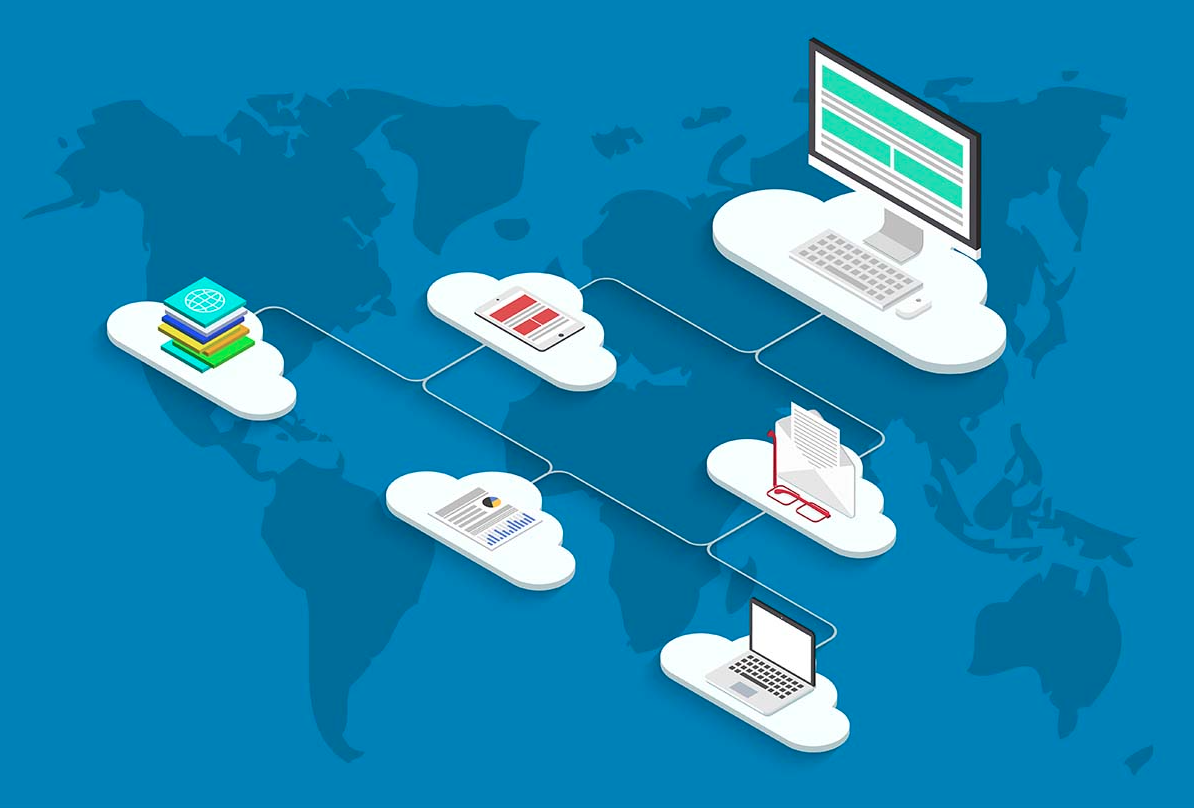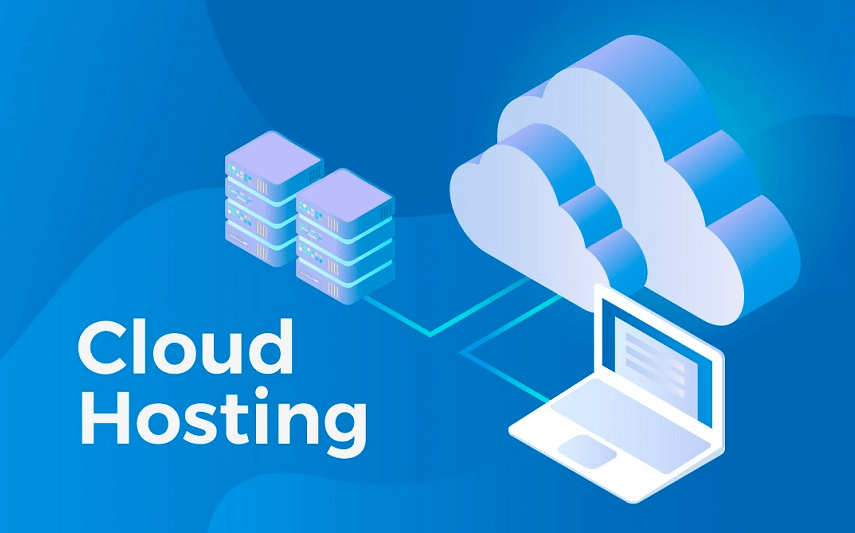Amazon Web Services in Cloud Computing: Unlocking the Power of the Cloud
Amazon Web Services (AWS) has emerged as a dominant player in the world of cloud computing, offering a wide range of services to help businesses scale, secure, and optimize their operations. As a leading provider of cloud solutions, AWS offers businesses of all sizes access to high-performance infrastructure, flexible storage options, and advanced computational power. This article will explore how Amazon Web Services is transforming the cloud computing landscape and why it’s the go-to choice for many organizations.
Why Choose Amazon Web Services for Cloud Computing?
Amazon Web Services (AWS) provides a comprehensive suite of cloud computing solutions designed to meet the diverse needs of businesses. From hosting websites and databases to supporting complex machine learning models, AWS offers a robust set of tools. Below are the key reasons why businesses opt for AWS for their cloud computing needs:
1. Scalability and Flexibility
With AWS, businesses can scale their infrastructure up or down based on demand. Whether you’re running a small website or a global e-commerce platform, AWS offers resources that can adapt to your needs in real time.
2. Cost Efficiency
One of the main advantages of AWS in cloud computing is its pay-as-you-go model. This allows businesses to only pay for the services they use, avoiding the high costs associated with maintaining on-premise infrastructure.
3. Security
Security is a top priority with AWS, as it offers a wide range of security tools, compliance certifications, and encryption options to ensure your data is protected. AWS’s robust security measures help businesses stay ahead of potential cyber threats.
4. Global Reach
With data centers located across the globe, AWS allows businesses to serve their customers with low latency and high availability, regardless of their geographic location.
Key AWS Services in Cloud Computing
Amazon Web Services offers an extensive range of services that address various aspects of cloud computing. Below is a breakdown of the key services available:
| Service | Description |
|---|---|
| Amazon EC2 (Elastic Compute Cloud) | Provides resizable compute capacity in the cloud. EC2 allows businesses to run virtual servers on-demand, scaling as necessary. |
| Amazon S3 (Simple Storage Service) | A scalable storage service that enables businesses to store and retrieve large amounts of data with high durability. |
| Amazon RDS (Relational Database Service) | Managed database service that simplifies setting up, operating, and scaling a relational database in the cloud. |
| Amazon Lambda | A serverless computing service that runs code without provisioning or managing servers, helping developers build scalable applications. |
| Amazon CloudFront | A content delivery network (CDN) that provides low-latency delivery of web content to users across the globe. |
| Amazon VPC (Virtual Private Cloud) | Enables businesses to create isolated cloud networks to host their resources securely. |
| Amazon Elastic Beanstalk | An easy-to-use service for deploying and scaling web applications and services in the cloud. |
| Amazon Machine Learning | Provides a suite of tools and services to build, train, and deploy machine learning models in the cloud. |
Benefits of Using Amazon Web Services in Cloud Computing
The adoption of Amazon Web Services offers a multitude of benefits for businesses. Here are some key advantages of using AWS for cloud computing:
1. High Availability and Reliability
With AWS’s extensive global network of data centers, businesses can achieve high availability for their applications. AWS offers redundancy and failover systems that ensure your services are always up and running, even during hardware failures or other disruptions.
2. Fast Deployment
AWS enables quick deployment of applications and services, allowing businesses to go to market faster. Its infrastructure-as-a-service (IaaS) model reduces the need for lengthy procurement processes, allowing companies to focus on development and growth.
3. Automatic Scaling
With AWS, resources automatically scale according to demand. This means that businesses don’t have to worry about provisioning or de-provisioning servers to match fluctuating traffic volumes, making it easier to manage capacity and reduce costs.
4. Comprehensive Analytics Tools
AWS offers powerful analytics services, such as Amazon Redshift and AWS Data Pipeline, that help businesses gain actionable insights from large datasets. These tools support real-time data processing, making it easier for organizations to make informed decisions.
5. Innovation and Constant Improvement
AWS continuously innovates and expands its services. As the cloud landscape evolves, AWS stays ahead of the curve by introducing new features, tools, and services that keep businesses competitive and help them adapt to industry trends.
Key AWS Pricing Models
AWS offers flexible pricing models to accommodate the varying needs of businesses. Here are the main pricing models available:
| Pricing Model | Description |
|---|---|
| On-Demand Pricing | Pay only for what you use, with no upfront costs or long-term commitments. Ideal for businesses with variable workloads. |
| Reserved Instances | Commit to using AWS services for a longer term (typically 1 or 3 years) in exchange for significant cost savings. |
| Spot Instances | Purchase unused AWS capacity at a fraction of the cost. Ideal for flexible workloads that can tolerate interruptions. |
| Savings Plans | Offers flexible pricing across AWS compute services, providing savings in exchange for committing to consistent usage. |
| Free Tier | AWS offers a free tier for certain services, providing limited usage for new customers to explore the cloud without incurring costs. |
How to Choose the Right AWS Services for Your Business
Choosing the right Amazon Web Services for your cloud computing needs depends on your specific business requirements. Below are some factors to consider:
| Factor | Consideration |
|---|---|
| Workload Type | Identify whether your workloads require compute resources, storage, or networking. This will guide your selection of EC2, S3, or VPC services. |
| Scalability Needs | If your business experiences fluctuating traffic or demand, consider services like EC2 and Auto Scaling that offer dynamic scaling. |
| Security Requirements | If your business handles sensitive data, choose services that provide strong encryption and compliance certifications, such as RDS or VPC. |
| Integration Needs | AWS offers services that integrate with a wide variety of tools and applications. Consider your current software stack when selecting services. |
| Budget and Cost Management | Take advantage of pricing models such as Reserved Instances and Savings Plans to optimize costs for long-term workloads. |
Conclusion: Why Amazon Web Services is the Leader in Cloud Computing
Amazon Web Services (AWS) is an industry leader in cloud computing, offering a wide array of scalable, secure, and cost-effective solutions. With its robust infrastructure, flexible pricing models, and constant innovation, AWS empowers businesses to grow and stay competitive in an increasingly digital world. Whether you are a startup or a large enterprise, AWS provides the tools and resources to drive your cloud computing strategy forward and achieve your business goals with ease.
Explore

The Ultimate Guide to Multi-Cloud Management: Streamlining Operations Across Diverse Cloud Environments

Oracle NetSuite Cloud: Revolutionizing Business Management with Cloud ERP

Best Solar Companies Near Me: Harness the Power of the Sun

Secure Your Business: Exploring the Best Cloud Backup Services

Transform Your Business with IT Cloud Solutions: Benefits, Challenges, and Best Practices

Cloud Hosting Showdown: Comparing the Best Providers for Speed, Security, and Scalability

Unlocking Growth with Enterprise Software: Key Features That Drive Success

Unlocking Potential: The Best Sport Psychology Schools for Aspiring Coaches and Therapists
